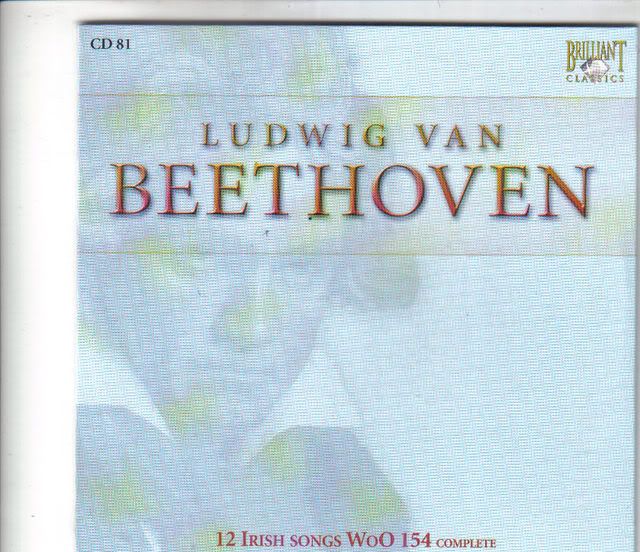
The Complete Beethoven 100 CD boxset. An impulsive purchase today as an early birthday gift to meself. I deserve it. :-)
http://irelandtoo.blogspot.com


 The songs themselves are intrinsically excellent but they are raised to a new level by these arrangements.
The songs themselves are intrinsically excellent but they are raised to a new level by these arrangements. The songs themselves are intrinsically excellent but they are raised to a new level by these arrangements.
The songs themselves are intrinsically excellent but they are raised to a new level by these arrangements.
 The songs themselves are intrinsically excellent but they are raised to a new level by these arrangements.
The songs themselves are intrinsically excellent but they are raised to a new level by these arrangements.
Comment